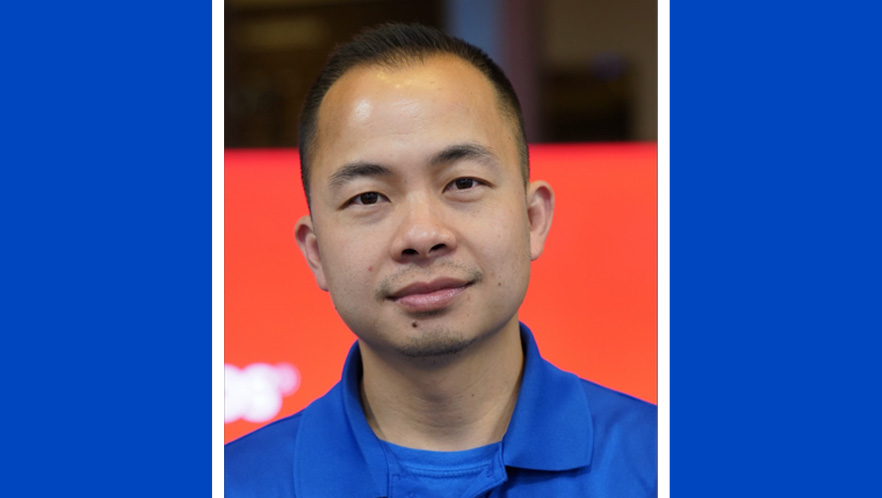Editor’s note: In May, Best Buy is proud to honor Asian American Pacific Islander (AAPI) Heritage Month and celebrate our AAPI employees and communities. Read on for the story of one of our AAPI leaders.
Those who have worked with general manager Tai Ngo describe him one of two ways. First, he knows how to go out and get results. Second, Tai’s colleagues bring up his passion for his team and his ability to make employees feel heard.
Throughout his years at Best Buy, Tai’s stores have been recognized as top performers multiple times, and his leaders praise his employee-retention numbers.
“His way of delivering company-leading outcomes through employees has always been organic and really successful,” said Duc Dang, senior market director and Tai’s longtime mentor.
While results are important, they don’t hold Tai back from leading his team with vulnerability. He shares his background and experiences to connect with others and show them that there’s more than one career path.
“A lot of younger employees think I just inherited this job,” Tai said. “But I tell them, ‘I started hourly like you. I don’t have a college degree, but with Best Buy, there’s always an opportunity.’”
Tai’s story
Tai’s lessons in opportunity began at a young age. When he was 7 years old, Tai moved to the U.S. from Vietnam with his parents and two of his three older brothers.
He said his parents were at first hesitant to leave their home and other family members behind but decided a life in the U.S. could provide more opportunities for their children.
When Tai and his family arrived in the U.S. in 1993, it was an intense culture shock. They didn’t speak English, had brought only $200 and arrived in Washington, D.C., during what’s known as the “1993 Storm of the Century.”
Immediately, Tai’s parents and brothers began searching for jobs, multiple jobs even, to provide for the family. His brothers also enrolled in college to complete their education.
“I remember every detail because it was the hardest time for my family,” Tai said.
He credits his work ethic today to watching his parents and brothers work so hard during those years. “My dad is a hero,” he said. “Who wants to start all over at age 50? But I’m glad he did it.”
Life lessons put into practice
Tai has used those lessons from his family to drive his own career journey.
He began at Best Buy 15 years ago ready for a chance to prove to himself and his leaders that he was a standout employee. As he worked his way through different leadership roles in the company, he saw his hard work pay off and uncover new opportunities, such as moving from sales to managing people. His mentors, like Duc, encouraged him and watched as he developed empathy and other people skills that have made him into the leader he is today.
Tai’s personal experiences have also shaped his leadership style. When he’s confronted with difficult situations, he’s able to see the bigger picture and not sweat the small stuff.
“Everything is a lot easier now that I can speak the language, I have networks, I’m in a position to influence people,” he said. “It just goes to show that nothing is impossible.”
Leading with vulnerability
On top of driving results, Tai has learned to build a strong team culture though vulnerability. When he shares his story with others, he’s not looking for sympathy. Instead, it helps him start the conversation about what’s important to him and then asking about his employees’ values, struggles and goals.
“If someone wants to grow within Best Buy or not, Tai makes it clear he wants to support them however he can,” Duc said.
Tai’s grateful for the people like Duc who have coached him throughout his Best Buy journey, and he knows first-hand mentorship relationships can be valuable for BIPOC (Black, Indigenous and people of color) employees. He hopes to be that guiding influence for others as well and create a workplace culture that welcomes all.
“The business needs to fit employees’ needs, not them fitting into the business’ needs,” he said. “I want to pay it forward and make sure that all employees know that their contributions and talents matter.”


